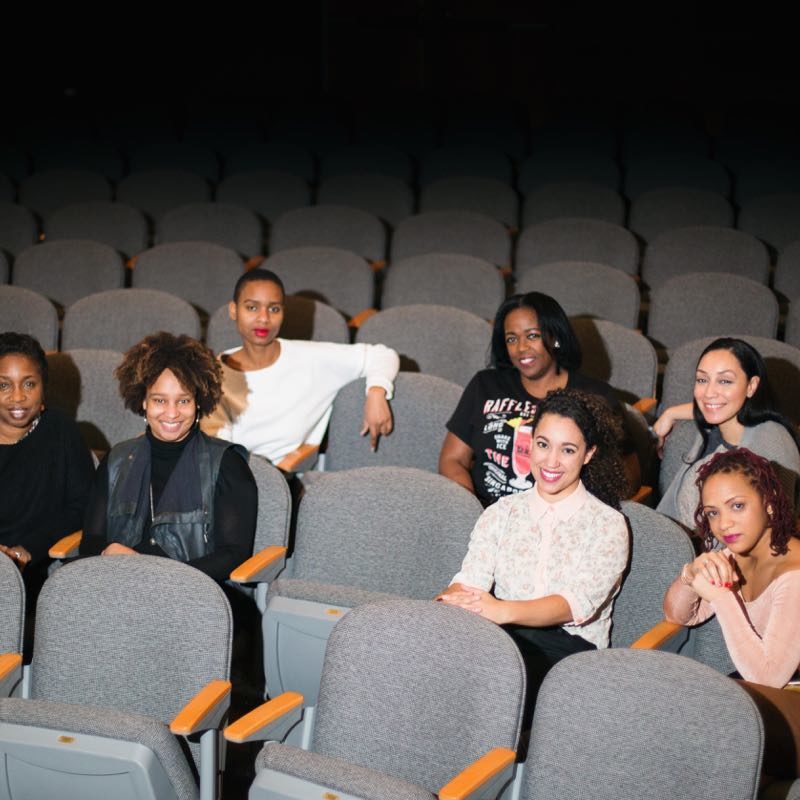The Fire This Time Festival: A Roundtable
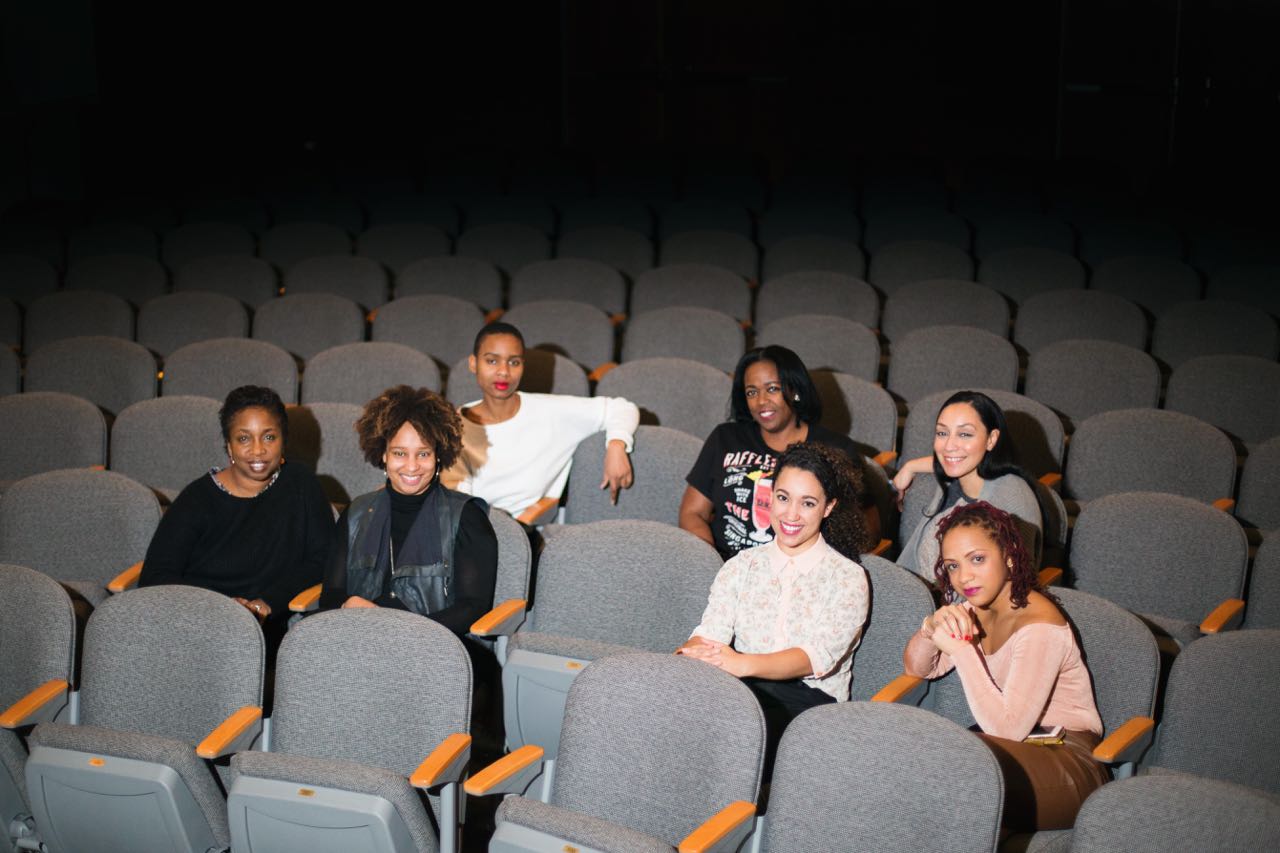
Written by Sarah Rebell
Photography by Tess Mayer
January 18th, 2018
Shortly after graduating from Columbia University’s MFA playwriting program, Kelley Girod founded The Fire This Time Festival. With a name inspired by James Baldwin’s The Fire Next Time essay collection, the festival provides a space in which emerging African-American playwrights can develop diverse, innovative, and engaging new work. Now in its ninth year, the Obie Award winning festival has featured many female writers who have gone on to receive critical acclaim, including Dominique Morriseau and Jocelyn Bioh. The current iteration of The Fire This Time Festival runs through January 28, at The Kraine Theatre, and features new plays by five African-American women, all of which are being directed by a woman. We recently spoke with playwrights Sandra A. Daley-Sharif, Shelley Fort, Gethsemane Herron-Coward, Charly Evon Simpson, and Mona R. Washington, as well as with director Candis Jones and founding artistic director Kelley Girod, about their experiences with this festival, and what it’s like to be a woman of color working in the theatre industry today.
Before we jump in, let’s go around the table. What is the title of the play you wrote (or directed), and what is your play about?
Charly Evon Simpson: My play is called The House. I always describe it as a weird little play about two siblings having to come together and make a decision.
Shelley Fort: My play is called Poppy. My play is about a young girl who runs away from home and ends up in a courtroom accused of having thought of having an abortion.
Gethsemane Herron-Coward: My play is called The Falling Man, and it is based off the photograph, documentary, and article all called “The Falling Man,” about one of the jumpers on 9/11.
Sandra A. Daley-Sharif: My play is Anonymous. Jumping off of this whole idea of identity, my play is about an artist who is frustrated with the business of art, and she’s not recognized, and she dares to infringe upon the system and put her art in one of the spaces anonymously.
Mona R. Washington: My play’s called The Rider and it is about love, but it’s also about power. And there’s an intra-racial conflict between somebody born and raised for part of their life in Sub-Saharan Africa, and an African-American born and raised here. It’s about power and lack thereof.
Candis Jones: I’m directing all these lovely, amazing, wild, and different plays. It’s crazy, but it’s fun.
Kelley Girod: I just want to say how amazing this is. One of the biggest components of founding The Fire This Time Festival is that coming out of school, I didn’t feel like I had a community. One of the biggest pushes for me was just to be able to identify that community. And I knew that if there was going to be a space for my voice, the way that I wanted to express myself as a black female artist, that I was going to have to make the push to make a space for that myself. We’re so lucky to have Sandra Daley here, who is the founder of Harlem9. We all popped up at the same time. It was really amazing. And I think that we were all speaking to the same need, that we did not feel that institutions were giving us the freedom to say, “This is a black expression.” Everyone felt like they were being asked to write the same play. Now, we’ve created a spectrum where writing about being a young black man and what it’s like wearing a hoodie is just as valid an expression as someone in a hipster café in Brooklyn who’s going through a breakup. I didn’t want anybody to tell me what I could or could not write.
And, I’ve always excluded this fact—except that now I think it’s so timely—I had been told by a lot of people when I was coming out of school, “You should go see so-and-so. You’re attractive; you can get a production.” And that was always the thing I was scared of as a female artist, that if I did not make my own way, I did not ever want anyone feeling that I owed them something. And I’ve never said that, except now we’re in the #MeToo movement and I can talk about this now. I was like, “I’m going my own way because I’m never going to find myself in that position.”
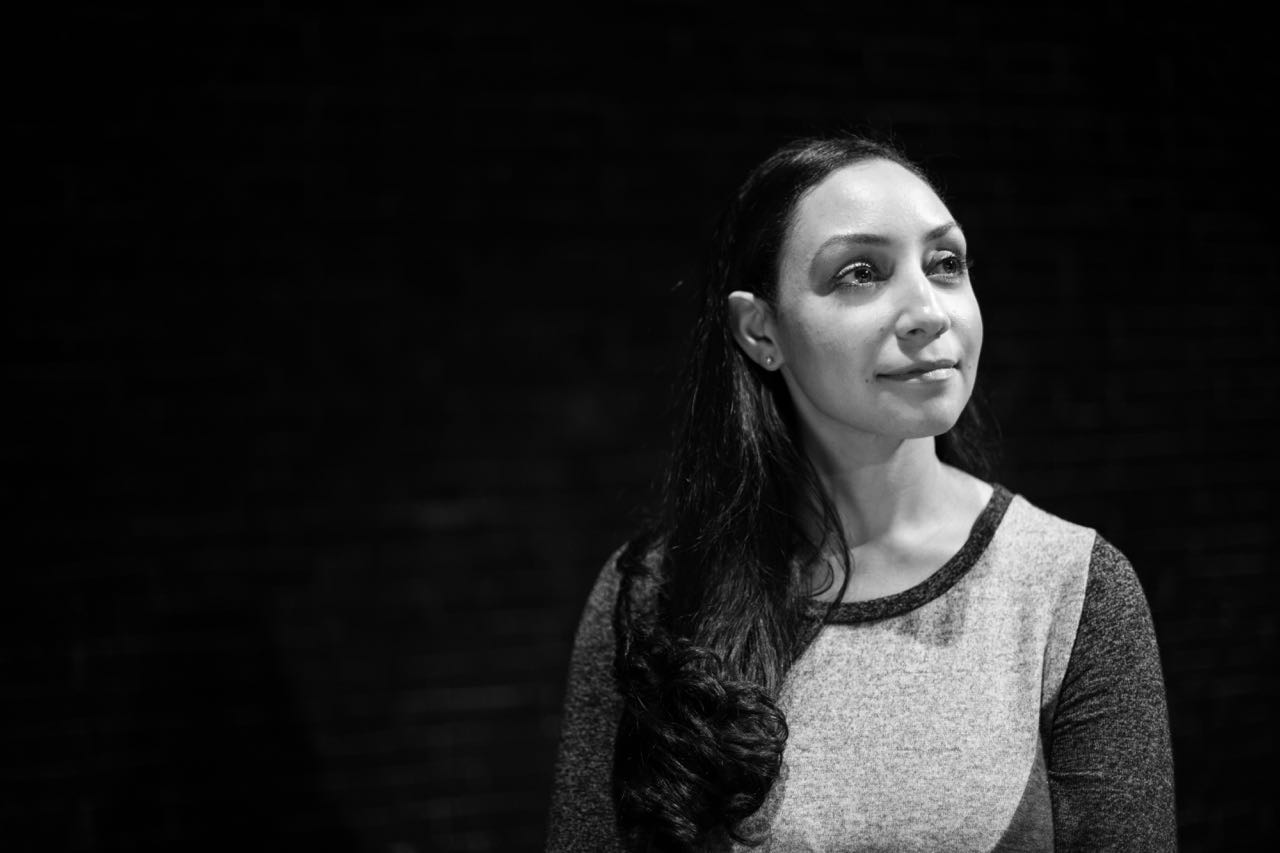
Let’s definitely plan to return to the #MeToo movement later, but first, it would be great to hear a bit from the group about how everybody got involved in this festival.
Charly: I literally got an email. I don’t know if there was another conversation behind that, but I just got an email.
Candis: This festival is usually known for the younger voices and the emerging voices, and artists that you have not heard of yet who should be produced. It’s a great space to have the support and production values that a lot of short play festivals don’t get. To have your work valued at this early stage is important for black festivals and for festivals in general.
Sandra: I think if you’re a writer of color, this is one of the festivals that you have to do. And to be honest, there are not a lot of spaces where we can just be us together. I mean, it’s great if you get your work produced at Playwrights or the Signature or Rattlestick, all these amazing places, but I think you know the safe spaces where you can declare your voice… I think this is a festival that you have to do. It’s your rite of passage as a writer.
Gethsemane: I found out about the festival via Columbia. Our former Professor Kelley Stewart told me, “You need to know Kelley Girod, she’s amazing, she’ll take care of you.” And at the time, I was very frustrated with Columbia. Now, I love Columbia, and I know that I chose the right program, but the first year is, I think, the hardest. I remember [Kelley] and I got breakfast one day, and just bonded over Lush and being black girls and talking about our time at Columbia. It was such a wonderful moment. I think I told my cohorts, “Hey guys, I love you guys. See you later, I’m going to go hang out with some black people now.” It is isolating being the one person in your cohort that inhabits that intersection of being black and American and a woman, all at the same time.
Kelley: I’m so proud of that, more than anything, because now there’s a place for the playwrights to come. We’re there for each other. The work that we do is so isolating, just outside of the isolation of being that one black person, that you have to have somewhere you can go to.
Shelley: I’ve been through some really fucking badass communities before, or so I thought, because as institutions they have this prestige. And yet, I’ve never felt so safe in a space and so appreciated. Someone reached out to me to apply to this festival. I never considered myself a writer before. My white professors never really were like, “Your words spoke to me,” or, “That passage was magical,” or, “That took me to another place.” Honestly, you do need that validation, and it’s different because I’m also an actor. I don’t necessarily look for that validation all the time there. With writing, especially as a new writer, it’s cool to be in this community of people who don’t judge you. Because my play, it’s fucking weird. It’s scary to be bold. To be accepted for that boldness, and challenged, and held up, it’s really dope.
Candis: I think there’s an expectation as a director to do certain kinds of black work. I love that there’s a variant of pieces [in the Fire This Time Festival]. There are a couple of experimental pieces, and I love experimental theatre… I don’t know if we’re all expected to be linear, but I feel like there’s something in the black canon that’s like, “I know what a black play is.” And as a director, it’s so annoying because I actually like this thing way over here instead. So it’s nice to be able to express that and find a collaboration that meshes with it.
Charly: The same goes for me as a writer. I feel like I’m often writing plays with, if not specifically black characters, people of color being in the situations that are very much about their person and race and often these weird other situations that you find yourself in. I always feel like I’m being asked, “Why is this character a person of color? Why do you say this has to be a person of color?” And I’m always like, “Well, why doesn’t it? It can be.”
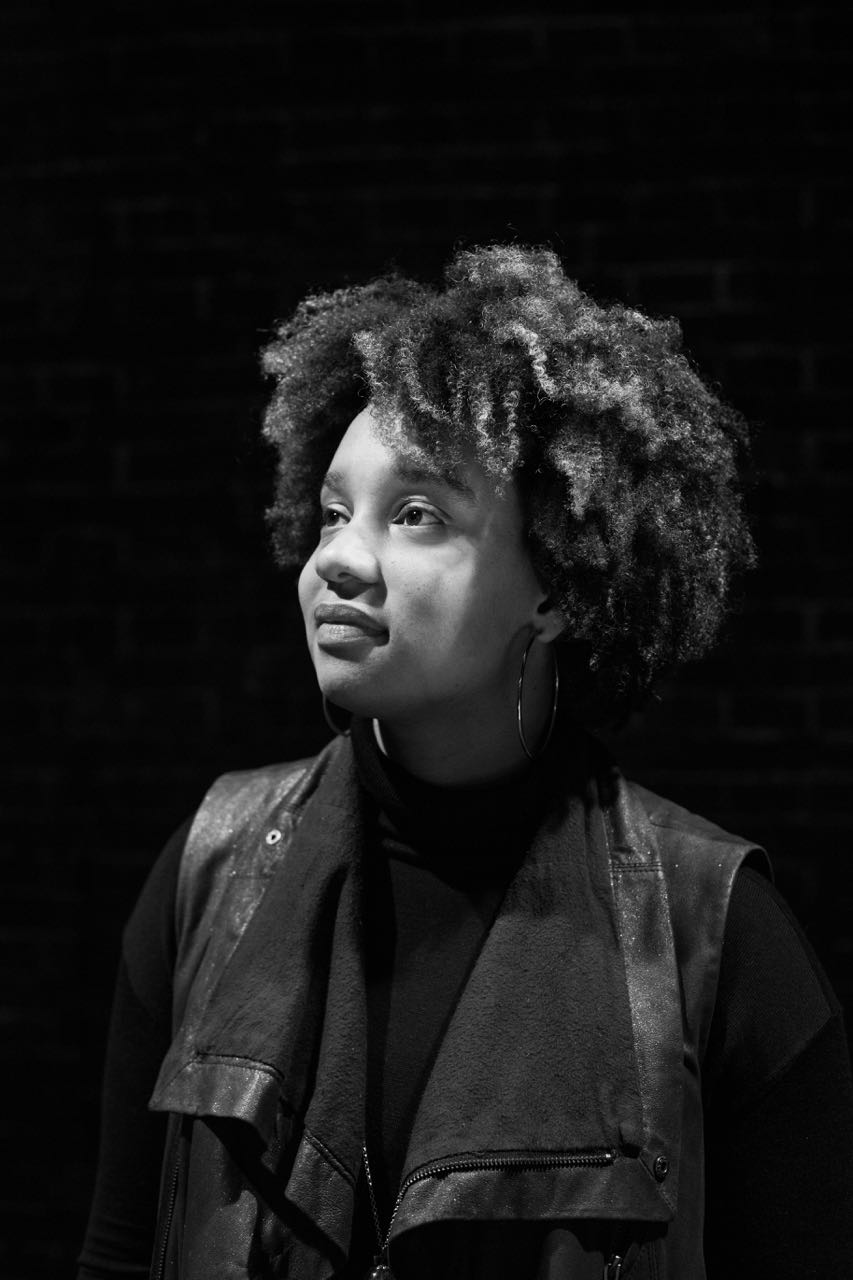
Have you noticed a change at all in the festival since it was founded, which was when Obama was president and the country seemed to be going in a very different direction?
Kelley: I’m so glad you asked that question, because to me there was a very kind of specific turn in the work, the work that was being presented, when Trayvon Martin happened. I remember that year, there were a lot of plays about police brutality. It was on people’s minds. Ever since, the writing has more of a specific social conscience than it did before. There still is great diversity, but I feel like [the plays are] much more issue-oriented.

Were current political issues on your minds when you were writing these plays?
Sandra: I always feel that our work is political anyway. Just the fact that you are of color, writing is a political statement in itself. Even when you write about the everyday, it’s political. Oftentimes we get labeled as “serious,” and I don’t necessarily agree with that either. But I do think that the work is very poignant, and always very political. It does require us to be really brave to stand in that. And the truth is we can’t be anything else.
Charly: In my play, there’s a character that goes to the woods to live and comes back. I’m someone that likes to go on hikes and go to the woods. Every time I go to the woods, my dad’s like, “I don’t want you to go to the woods because there are not very many people of color in the woods.” And it’s true. I’m writing this play, and I can’t go to the woods without thinking about my race, and my gender, and being in that space and what that means. So even if it’s a play about seemingly going into the woods to meditate, the fact that there’s a body like mine in that space, and if I’m honest about the things that I worry about when I go into those spaces, these [political concerns] automatically come up. The fact of the matter is that I go upstate and I see confederate flags, and I wonder what can happen there in that space. And what does happen.
Sandra: I want everybody to know that there are tons of black girls who go into the woods to meditate. We are not just on the corner doing ghetto shit, whatever that is. I don’t even want to label that either. Anything that we write, that comes out of us, is political. And seeing black bodies on stage, or white bodies written through black voice onstage, is so political. I get so much shit when I write a play that has no black people in it.
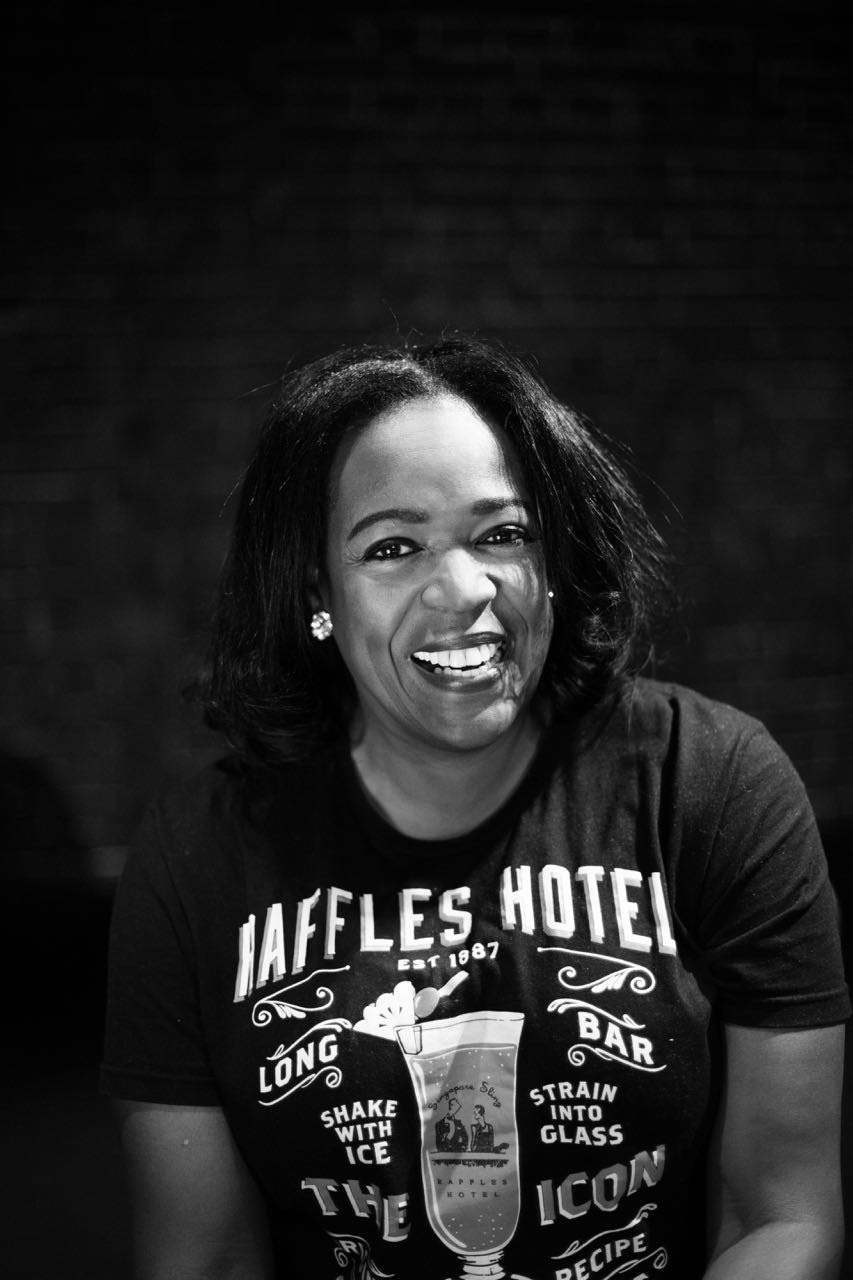
Mona: I think that if you’re self-aware enough to know the world we live in, you kind of have to write from the center of the margins and take yourself seriously. I have a play about lynching, and there are no black characters. So my play’s about racism, not race. Since we all have to, in some existential way, address racism, I think people want to constantly contain us. Instead of saying, “it’s raining on all of us,” some people put on a rain hat, some people pull out an umbrella, but we all have to react to it.
Sandra: But I do think the flip side of it is to be careful of how we judge each other. I identify as a Jamaican woman. I know that it influences my perspective, living in the US, married to a very American man. But my fears about presenting my work [are] oftentimes coming from my own community, and what they say black is. I’m also coming from a place of wanting to be a leader in our community, in terms of really allowing space for all of us to write whatever the heck it is we want to write.
Kelley: Sandra, I’m so glad you said something about leaders. I think the big conversation that’s not being had in our theatre industry now is the fact that you can produce all of the people of color that you want but, if you’re not letting people of color be your gatekeepers, then you can’t really affect any change. There need to be people in those admin positions, those artistic director positions, those executive positions, who understand, so that every time you go into an institution, you’re not worried about why they’re producing you. You’re not worried; you’re not paranoid [about whether] you’re going to be the only one produced this year. Those are the conversations that really need to start happening.
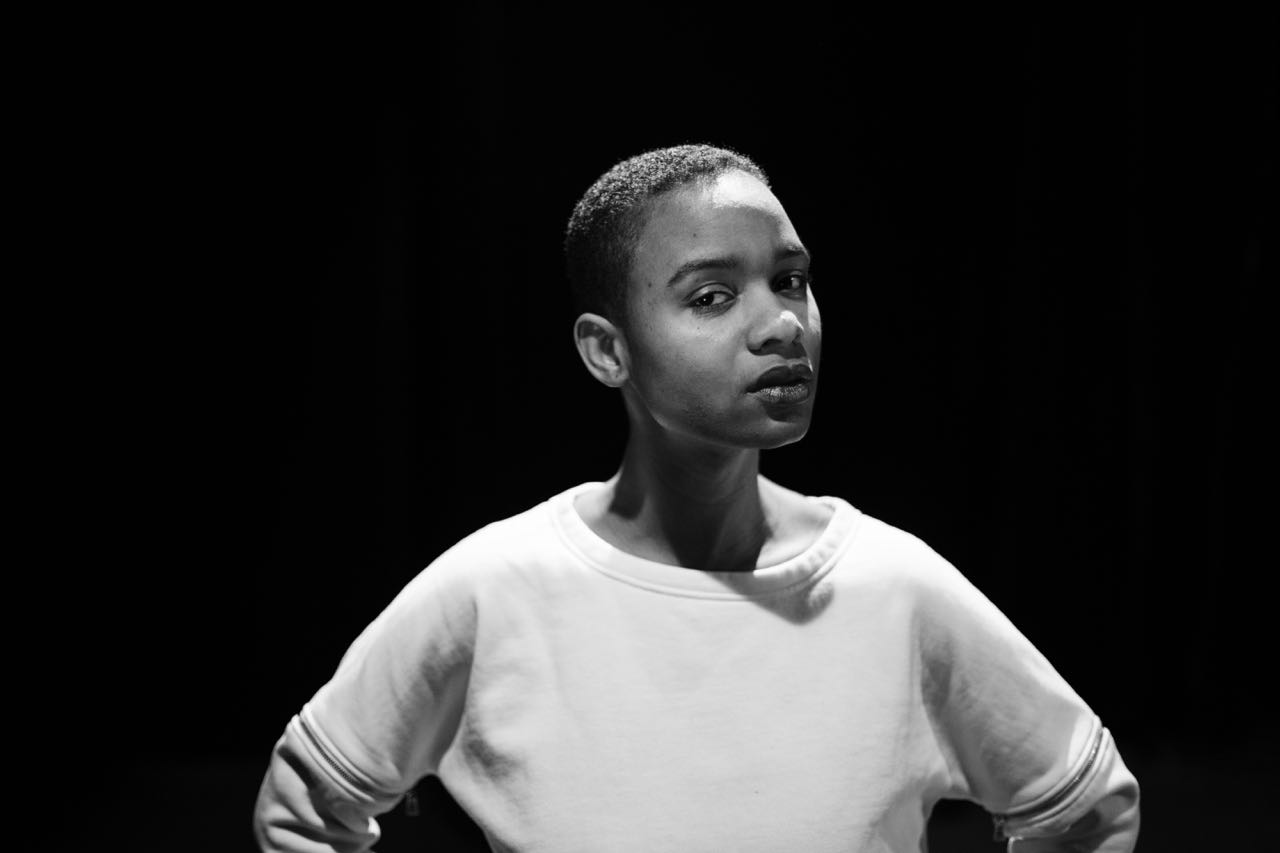
As theatre artists, you have the opportunity to amplify your voices and be mentors. Do any of you feel that, through your plays, you express yourself and your voice in a way that maybe differs from your day-to-day life?
Mona: Sure, because plays are “make-believe,” and it’s safer. Writing is safer than going to political meetings and having people follow me out to the parking lot.
Shelley: I don’t know. For me, I feel so confident acting, but with my writing, it’s so vulnerable. For me, it’s scary. I also am conscious of being judged by the community with this play, solely because it’s the most anxious, fear-driven [play] that I’ve written. It came right after Trump’s election.
Sandra: Writing is vulnerable. You can hide behind the playwright’s words as an actor. Even when you say, “This is not autobiographical, by the way, it’s semi, or it’s not about my life,” you know that people are taking it apart, and they’re finding you in there. You’re scared to put it out there that you don’t necessarily see it the way the masses might see it.
Charly: I think a lot about how, especially as a black woman, how and where my voice gets chipped [away] and where I allow that or don’t recognize that it’s happening, and where I feel like I can sort of fight against it. And so I think that yes, my voice is sort of different on the page because I am far more vulnerable.
Kelley: I read a couple years ago that the MFA programs are now becoming almost necessary. You have to go through the MFA programs to get your foot in the door. And why are other students critiquing your work? I’ve often thought that I don’t get that. There’s something that’s wrong with that process, in terms of trying to help. I don’t know how that helps shape you. Myself and Jocelyn Bioh were in the same year at Columbia, and thank God we had each other. But I’ve always thought there’s something not right about that, because Jocelyn and I would have the same experiences, to the point where we just had to be there for each other. And I never understood why another student who is a candidate in the same program as you, why are they commenting on your stuff? I always feel like [in] a successful MFA program, you come out at the end of that with as much work as possible. All you should be doing is going in once a week with pages, hearing it from actors, going back… For three years, all you should be doing is putting up stuff and being in a room with the director and actors. Because why are you commenting on my work? You’re students.
Sandra: Responding to that though, I think it is number one vital that we as writers, as artists, find that trusted person [or] I think it’s detrimental. You need to find that person quickly. Find one or two people that you trust implicitly. [People who] know you, they know your voice. They know what you want to say to the world, and they’re also critical about the work. And the second piece to that, in terms of the feedback stuff, I think what we miss is really great facilitators in the room. I think playwrights giving playwrights critique is fine in my mind, as long as there’s someone in the room who understands craft and what is the issue at hand.
Gethsemane: The common thing I’m hearing is that there’s something wrong with how the structure is functioning right now. It might not be serving us, the teachers, the students, what have you. Whether it be the teachers not knowing how to properly facilitate, whether it be our peers and our cohorts not knowing how to give us feedback… It just seems that there’s something wrong with the structures at play. That’s why something like this [festival] is so important, because it gives us a structure that works, that’s healthy. It’s so healthy, The Fire This Time Festival. It’s beautiful to be around each other.
[Editor’s Note: Candis Jones had to leave early to go to a rehearsal. Her next responses were provided later via email.]
Candis: I’m not sure if I’m hyper-aware of it, but I do know that I try to be very transparent when working in a rehearsal room. I typically share how I relate to material or zoom in on my “way in” to the work, hoping actors feel invited to engage in conversation as collaborators. In my [regular] day I’m probably much more introverted. But amplifying the personal always makes for strong, hearty work.
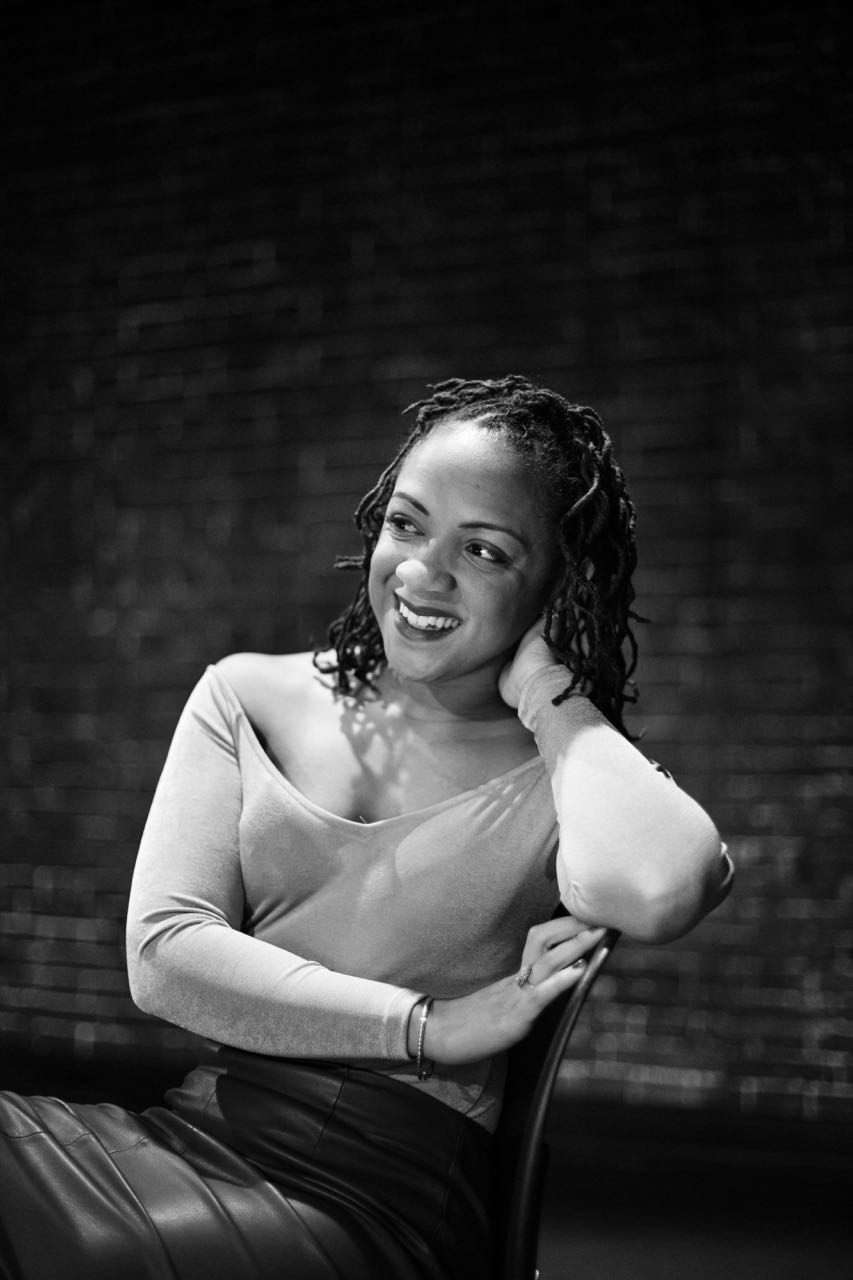
We’ve been talking a lot about the problems in the entertainment industry, particularly for women of color. Do recent developments (like the #MeToo movement and artists attempting to be activists) make you feel at all hopeful, or more ignited, in regard to your own work?
Sandra: I’m not hopeful. It’s not even that I’m coming from a pessimistic place. It’s the lay of the land in my mind. One or two get in at a time. The only thing I say to myself, and to my cohorts is, “Be ready when your turn comes.” Do the work and be ready, but I don’t necessarily see it [as] any different than what it was before. It’s only one of us at a time. And even as a gatekeeper, the sad thing is, I’ve got a small company. We spend all our resources to make something happen. When I say all, it’s not to make it small—it’s inspiration. This is the way you want to feel when you go some place else. Don’t stand for less. This is the way you want to feel with other black people in the room, or this is how black people can treat you. Don’t go any place else and take less.
Gethsemane: I think it’s analogous to people saying racism was over when Barack Obama was elected. And I’m like, what’s that supposed to mean? I feel like, yes, it’s lovely to see this movement in the media, people saying what has happened to them and being believed. That is wonderful, and I’m so happy to see that, but do I think that it’s the end of sexism and discrimination and everything that exists keeping people who are marginalized, women, older people, people of color, in their place? I don’t. I can’t say that it’s the end. I’m skeptical. I think it’s a change; I think that Barack was a major change, but I’m skeptical.
Charly: The Golden Globes for me was like, okay great, you have all these people that are in black and wearing pins and talking about things, but ultimately, look who won. The same sort of people… I think that the #MeToo movement is incredibly important, and has allowed people from celebrities to [people] like me express these weird uncontrolled experiences that we have had that needed to be shared, and that’s amazing. But how do you get from #MeToo to, “We have a society of people who continue to get used and abused and insulted”? There have been a ridiculous number of women of color who are lesbians who have been killed every week. How do we [address] that?
Kelley: I think that if you grew up black, you always grew up knowing that you would just have to do it yourself. This circles back to why Fire This Time, and the Harlem9, and all these other things exist. Maybe that’s why, if you’re actually serious about having diversity, be serious about putting up a gatekeeper of color. I’ve seen a lot of liberals who can afford to be liberal, and are liberal in name. They want to wear the safety pin. They want to be considered woke, but they don’t want to step the fuck out the way. If you are truly an ally, you need to step aside, because the black dresses on the red carpet were still being worn by women of a certain class, race… It’s taking the issue and it’s still making it about you. It’s, “now I have a spotlight even more on me because I’m woke.”
Candis: I definitely sense a worldwide bond of sisterhood with #MeToo and even #timesup.
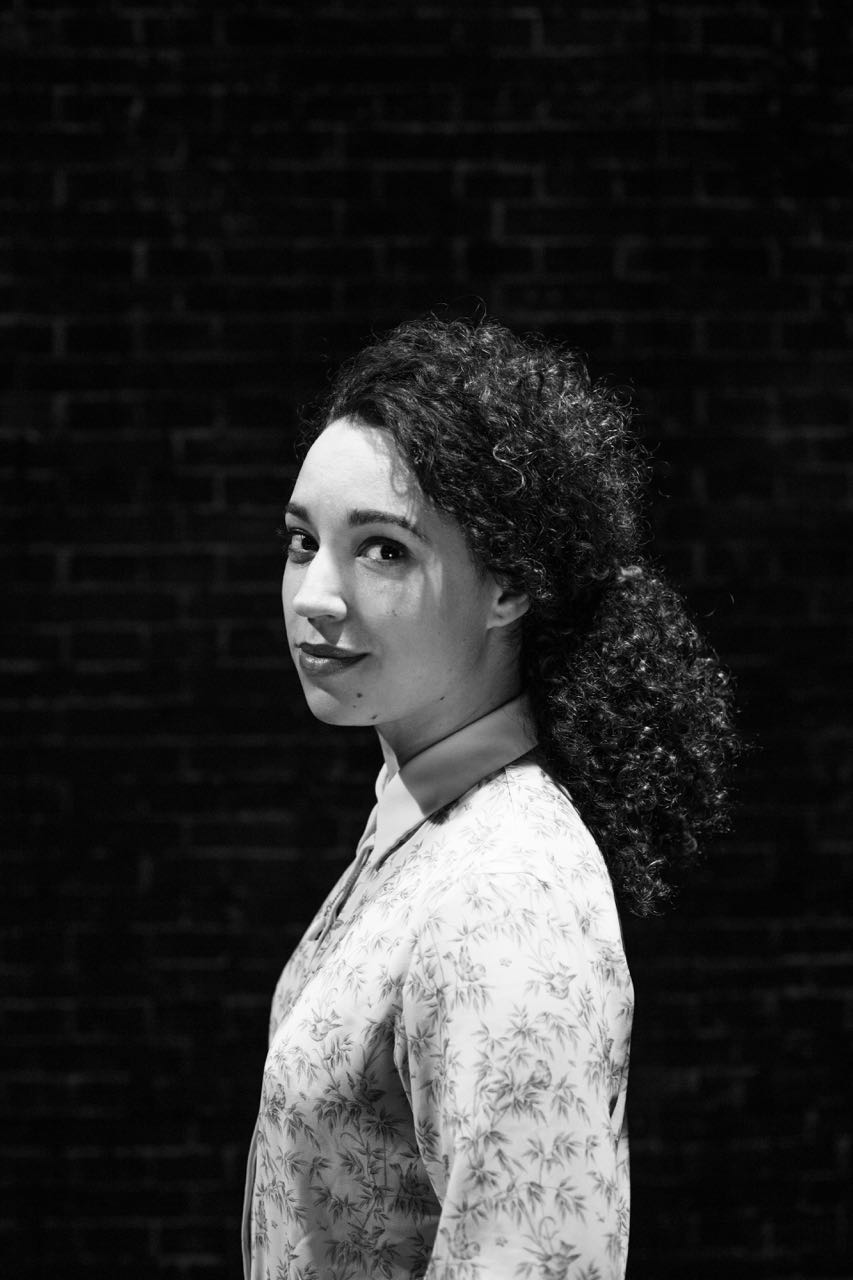
We do have to wrap up, but does anybody have any concluding thoughts, about The Fire This Time Festival, or anything that you feel like you haven’t yet had a chance to say?
Gethsemane: I’m just grateful to be here. I got to sit at this table, and listen to you all, and listen to your brilliance. Thank you to Kelley for offering us that space. This is the gift, to have such different ideas. Some of us are doing MFAs, some of us aren’t. Some of us are acting, and some of us are not. I learned so much tonight, and I think that’s why we need spaces like this.
Charly: Just to be able to have a variety of opinions in the same space. So often, it’s one of us, and it’s only that opinion. You feel like you have to represent everybody even though you don’t want to, and it’s lovely to just be able to be. As small as it might feel for some people who get that opportunity, it feels really big.
Candis: TFTT feels like the perfect family reunion to kick off 2018! Lean in and give this fabulous ensemble some love and bask in all the Black Theater joy!


